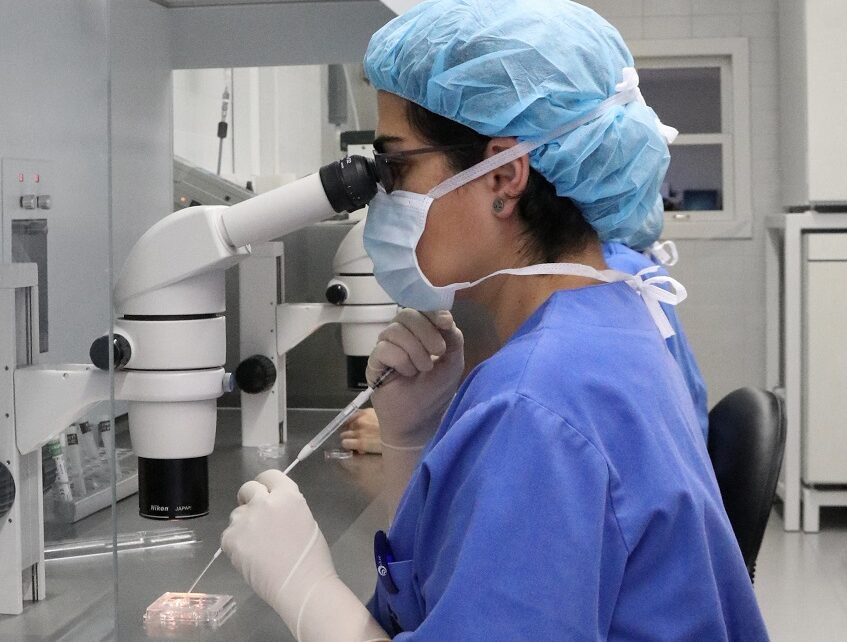
Reasons to cancel and embryo transfer
One of the most exciting times during a treatment of assisted reproductive is the Embryo Transfer. After carrying out all the laboratory processes, microinjection (ICSI) or insemination (IVF) and embryo culture, among others, it is time to transfer the selected embryo.
However at times it is not possible to transfer the embryo and we must cancel or postpone it.
Índice
In what situations would we cancel an embryo transfer?
- First, in order to protect the patient’s health. This is one of the most frequent reasons, to avoid the risk of ovarian hyperstimulation. High ovarian responses and a large number of eggs recovered means there is a risk of having a severe complication if pregnancy is achieved. In this case, the safest option is to cancel the transfer and freeze the embryos so that they are transferred when there is no risk to the patient.
- Second, another reason for canceling the transfer would be to protect the embryo. When a transfer is planned, the endometrium must be ready to receive the embryo. Sometimes, when the endometrium is evaluated via ultrasound, it may appear unstructured or even present slight bleeding. Any of these would indicate that it is not in the right conditions to receive an embryo since it would be non-receptive, thus losing the embryo. The best thing in this situation is to cancel the transfer and prepare the endometrium again for optimal embryo transfer.
- Another reason to cancel would be when there are no embryos viable for transfer. Sometimes after carrying out the laboratory processes we can find ourselves with a difficult situation to assume, which is non-transfer due to not having transferable embryos. The reasons that can lead to this situation are: embryos that have been biopsied for diagnosis of a disease (PGT-M) and are all affected, embryos biopsied for chromosomal screening (PGT-A and PGT-S) and all have alterations in their chromosomes, and finally embryos that have suffered a block in their development and do not allow the procedure to continue. In these situations the transfer is canceled, there is no possibility of postponing it and the only option is to repeat the whole process from the beginning.
What are our recommendations for the Covid-19?
Today we all have on our mind the etreme situation we are experiencing worldwide with COVID-19. National and international scientific societies (SEF -Spanish Fertility Society, ASEBIR -Spanish Association for Biology for Reproduction-, ESHRE -European Fertility Society-, ASRM -American Society for Reproductive Medicine, BFS -British Fertility Society-, among others)
initially recommended suspending all follicular puncture procedures and, in the case of an ongoing cycle, cancel the embryo transfer by vitrifying the embryos.
After the activity resume, and in case of infection by SARS-coV-2, Instituto Bernabeu has opted for the vitrification of biological material, eggs or embryos to avoid the possible harmful effects that COVID-19 infection can produce on the pregnant women and the foetus, making the transfers when the infection has passed
Although the cancellation of a transfer, for whatever reason, takes a significant emotional toll, we should not dwell on the negative. Whenever the embryo transfer is canceled it is done with a purpose, which is to improve the chances of having a healthy child at home.
Dr Dori Rodríguez, biologist at Instituto Bernabeu
THE FOLLOWING MAY ALSO BE OF INTEREST TO YOU:
- In Vitro Fertilization (IVF)
- ICSI. Intracytoplasmic Sperm Injection
The importance of freezing techniques during the Coronavirus COVID-19 pandemic - Is it beneficial to rest after the embryo transfer?
- Embryo transfer on day 4 – why not?
